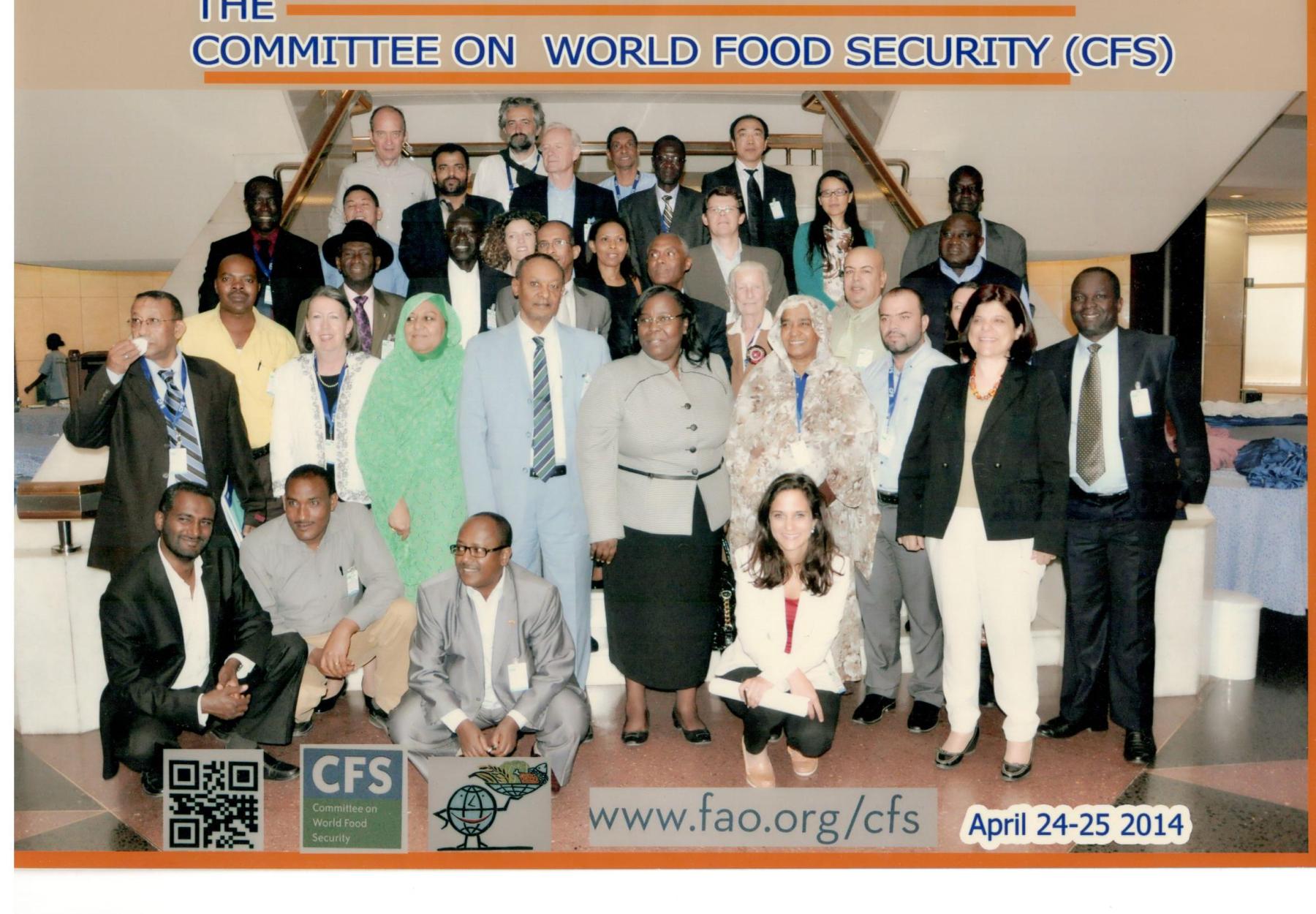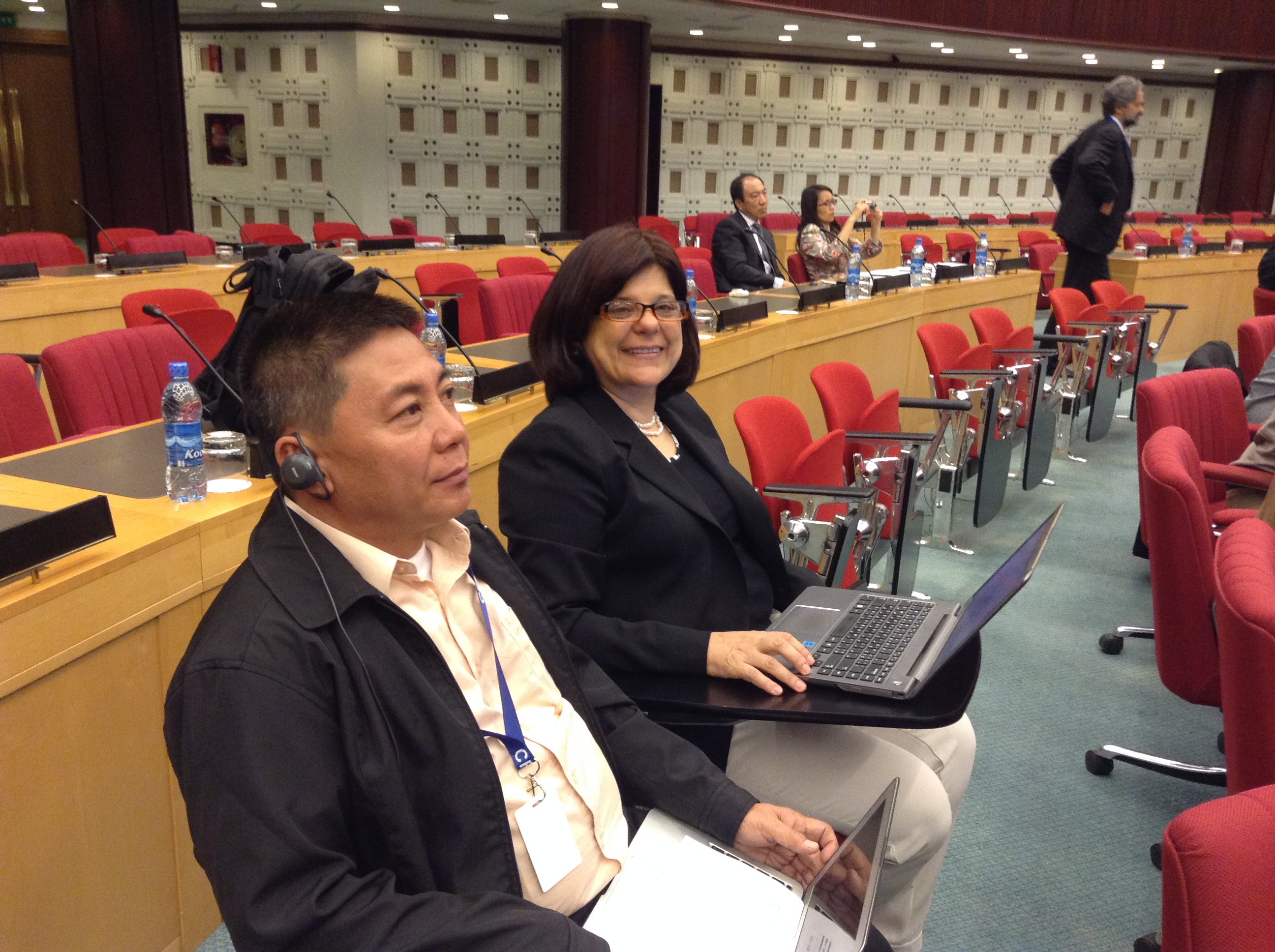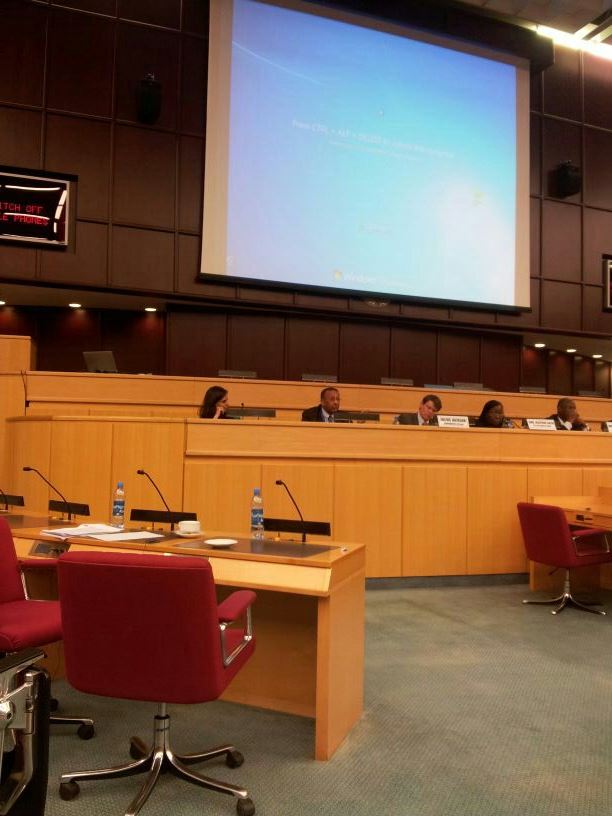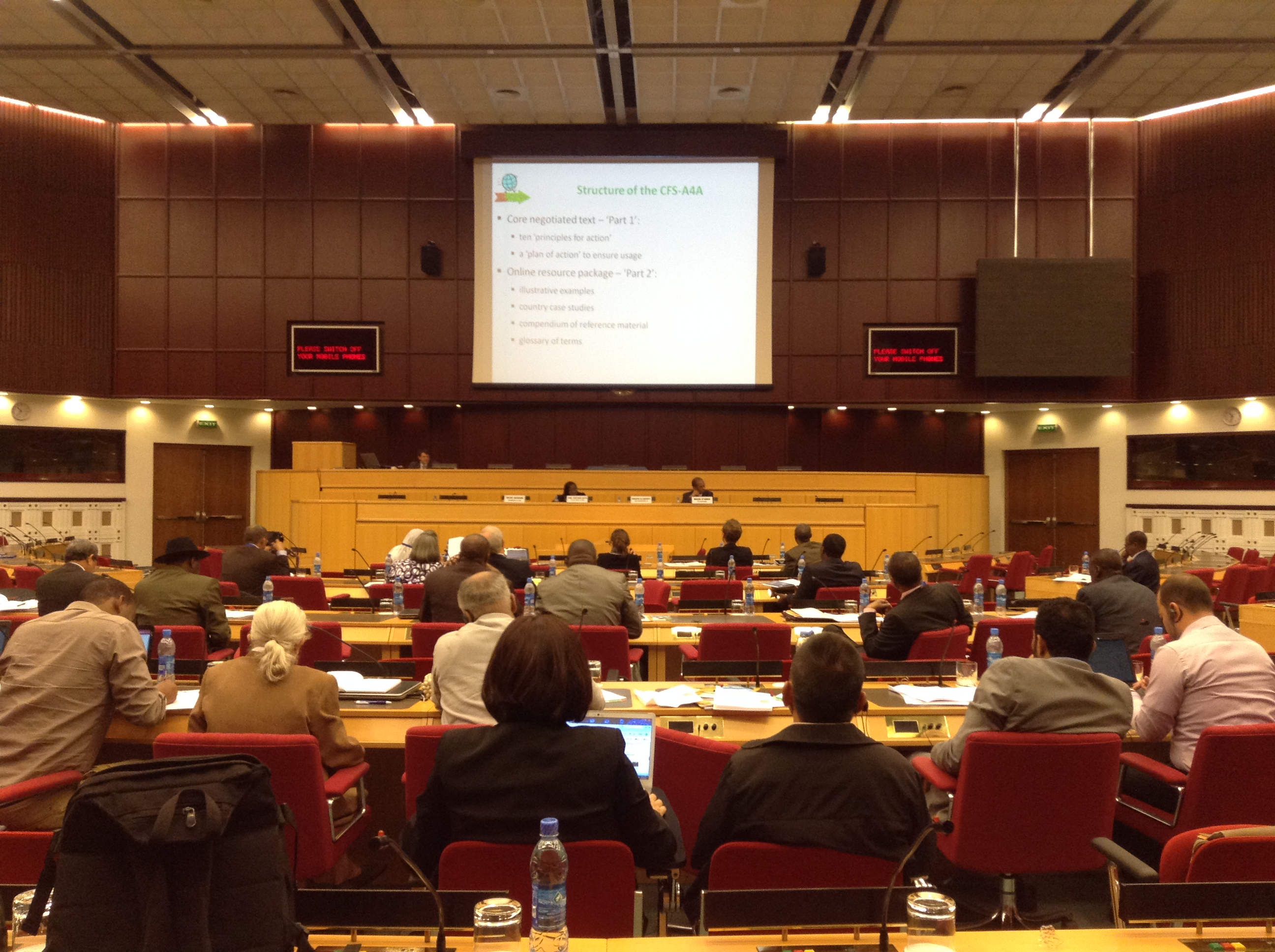
APN was invited to lead the Civil Society Mechanism in the Global Consultation on Food Insecurity in Protracted Crises held by the Committee on World Food Security (CFS) in the Ethiopian capital, Addis Ababa recently.
The meeting was attended by over 60 participants from governments, civil society, the private sector, agricultural research organizations and UN organizations.
Participants discussed the Agenda for Action Addressing Food Insecurity in Protracted Crises which will be be negotiated by states and ratified during the 41st session of the Committee on World Food Security in October 2014 in Rome.
The agenda aims to encourage political commitment towards the development of policies and procedures to address food insecurity and malnutrition in national crises and conflicts.
 President of APN, Razan Zuayter coordinator of the Civil Society Mechanism team was elected to be in the CFS Steering Committee of the High-Level Expert Forum to guide the process on Protracted Crises. Mariam Al-Jaajaa, Policy Coordinator at APN and member of the CFS Technical Committee was nominated to be the rapporteur of one of the dialogue sessions. They organized a preparatory meeting for civil society to identify priorities and prepare interventions. The preparatory meeting was attended by Gertrude Kenyangi from Uganda, and Abla Mahdi from Sudan, Jawad Arifi from Yemen, Roy Anouncian from the Philippines, Herman Kumara from Sri Lanka, Sue Edwards and Engda Wayard from Ethiopia.
President of APN, Razan Zuayter coordinator of the Civil Society Mechanism team was elected to be in the CFS Steering Committee of the High-Level Expert Forum to guide the process on Protracted Crises. Mariam Al-Jaajaa, Policy Coordinator at APN and member of the CFS Technical Committee was nominated to be the rapporteur of one of the dialogue sessions. They organized a preparatory meeting for civil society to identify priorities and prepare interventions. The preparatory meeting was attended by Gertrude Kenyangi from Uganda, and Abla Mahdi from Sudan, Jawad Arifi from Yemen, Roy Anouncian from the Philippines, Herman Kumara from Sri Lanka, Sue Edwards and Engda Wayard from Ethiopia.

Zuayter spoke about the necessity to carefully examine the different types of protracted crises, including wars, civil conflicts and occupation to diagnose problems and find solutions to cope with food insecurity and malnutrition. She stressed the need to support agriculture and local food systems, which are of particular importance in crises. She gave examples of methods of support that include improving infrastructure and access to productive resources, markets, consulting and training, and enhancing , productivity, quality and safety. The interventions of the Civil Society Mechanism was well-received by members of the Secretariat of the Committee on Food Security and most contributions were added in the New Draft Agenda that was sent to governments in June of this year.
